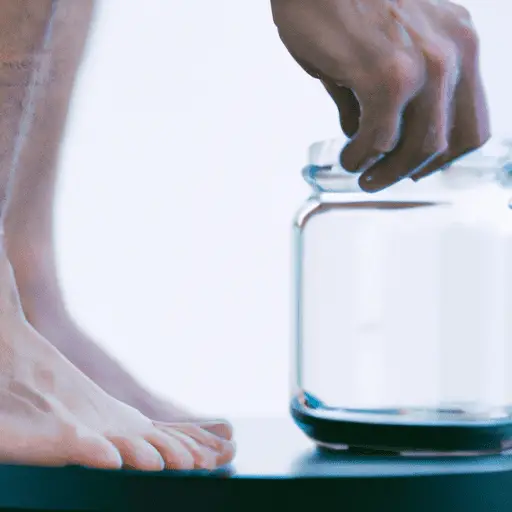Home Remedies for Varicose Veins
-
Table of Contents
- Home Remedies for Varicose Veins: A Comprehensive Guide
- Key Takeaways
- Introduction: Understanding Varicose Veins
- Home Remedies for Varicose Veins
- Regular Exercise
- Healthy Diet
- Maintaining a Healthy Weight
- Compression Stockings
- Elevating the Legs
- FAQ Section
- 1. What causes varicose veins?
- 2. Can varicose veins lead to serious health problems?
- 3. Can I prevent varicose veins?
- 4. When should I see a doctor?
- 5. What are the medical treatments for varicose veins?
- Conclusion: Managing Varicose Veins at Home
- Further Analysis
- Key Takeaways Revisited
Home Remedies for Varicose Veins: A Comprehensive Guide

[youtubomatic_search]
Key Takeaways
- Varicose veins are a common condition, affecting up to 35% of Americans.
- Several home remedies can help manage symptoms and prevent the progression of varicose veins.
- Regular exercise, a healthy diet, and maintaining a healthy weight are crucial for managing varicose veins.
- Compression stockings and elevating the legs can also help alleviate symptoms.
- While home remedies can help, medical treatment may be necessary in severe cases.
Introduction: Understanding Varicose Veins
Varicose veins, characterized by enlarged, twisted veins that often appear blue or dark purple, are a common condition affecting up to 35% of Americans, according to the Society for Vascular Surgery. While they can occur in any part of the body, they are most commonly found in the legs and feet due to the pressure of standing and walking. This article explores various home remedies that can help manage the symptoms of varicose veins and prevent their progression.
Home Remedies for Varicose Veins
While varicose veins can be uncomfortable and unsightly, several home remedies can help manage symptoms and prevent the condition from worsening. Here are some of the most effective strategies:
Regular Exercise
Regular physical activity promotes better blood circulation in the legs, which helps push along the blood that has collected in the veins. It also helps lower blood pressure, which is a significant risk factor for varicose veins. Walking, jogging, cycling, and swimming are all excellent exercises for this purpose.
Healthy Diet
A diet rich in fiber and low in salt can prevent constipation and reduce the pressure on veins, helping to prevent varicose veins or keep them from getting worse. Foods high in potassium, such as almonds and pistachio nuts, can also help reduce water retention.
Maintaining a Healthy Weight
Excess weight puts additional pressure on your veins and can lead to varicose veins. Maintaining a healthy weight reduces this pressure and helps prevent varicose veins and their associated symptoms.
Compression Stockings
Wearing compression stockings is one of the most effective ways to manage varicose veins at home. These stockings apply pressure to your legs and help your veins and leg muscles move blood more efficiently.
Elevating the Legs
Elevating the legs can help reduce leg swelling and relieve other symptoms of varicose veins. It’s especially beneficial when done several times a day for 15 minutes at a time.
FAQ Section
1. What causes varicose veins?
Varicose veins occur when the valves in your veins do not work properly, causing blood to pool in the veins. Factors such as age, pregnancy, obesity, prolonged standing, and a family history of varicose veins can increase the risk.
2. Can varicose veins lead to serious health problems?
In severe cases, varicose veins can lead to complications such as ulcers, blood clots, and bleeding. However, these complications are rare.
3. Can I prevent varicose veins?
While you can’t always prevent varicose veins, maintaining a healthy weight, exercising regularly, eating a high-fiber, low-salt diet, and avoiding high heels and tight hosiery can help prevent existing varicose veins from getting worse.
4. When should I see a doctor?
If your varicose veins cause pain, form sores, or become red and tender, it’s time to see a doctor. Also, if the appearance of the veins bothers you, you may want to discuss treatment options with your doctor.
5. What are the medical treatments for varicose veins?
Medical treatments for varicose veins include sclerotherapy, laser surgeries, catheter-assisted procedures, high ligation and vein stripping, and endoscopic vein surgery.
Conclusion: Managing Varicose Veins at Home
Varicose veins are a common condition that can cause discomfort and cosmetic concerns. However, several home remedies can help manage the symptoms and prevent the condition from worsening. Regular exercise, a healthy diet, maintaining a healthy weight, wearing compression stockings, and elevating the legs can all help. While these strategies can be effective, it’s important to seek medical attention if your varicose veins cause pain, form sores, or become red and tender.
[youtubomatic_search]
Further Analysis
While home remedies can help manage varicose veins, it’s important to remember that they are not a cure. In severe cases, medical treatment may be necessary. However, by incorporating these strategies into your daily routine, you can help manage your symptoms and improve your quality of life.
Key Takeaways Revisited
- Varicose veins are a common condition that can be managed with home remedies.
- Regular exercise, a healthy diet, and maintaining a healthy weight are crucial for managing varicose veins.
- Compression stockings and elevating the legs can help alleviate symptoms.
- While home remedies can help, medical treatment may be necessary in severe cases.
- Always consult with a healthcare professional if you have concerns about your varicose veins.


